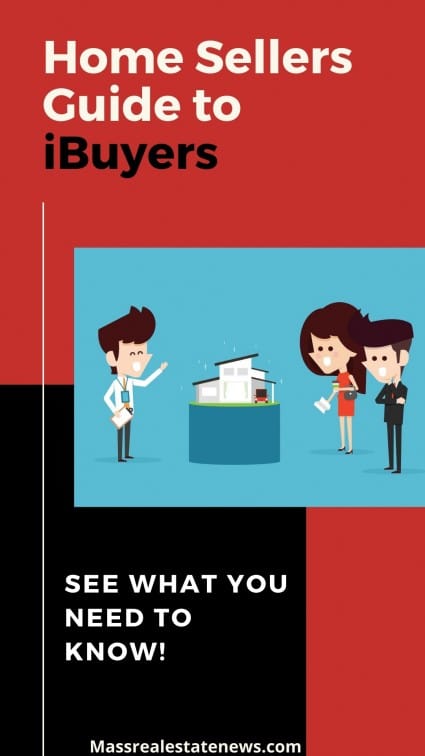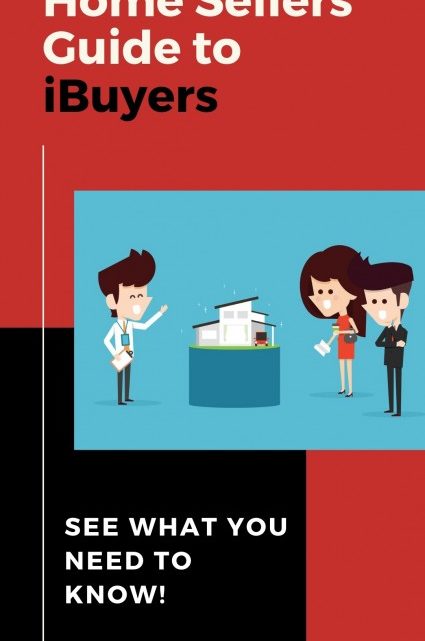With Business Innovations Come New Opportunities
Do you want to know what an ibuyer is and how they work? If you are thinking of selling your home, it’s possible you might have come across the term instant buyer or iBuyer. The ibuying phenomenon is relatively new in the real estate industry. Over the last few years, it has become more and more popular among a segment of the real estate market.
The term “iBuyers” defines digital real estate sale and acquisition. It’s a pretty recent innovation in the world of real estate, and as such, there is ample opportunity to profit. In 2014, the first iBuying platform—Opendoor—hit the market, and several similar platforms have swiftly followed. There’s still a lot of opportunities here; savvy investors should take note.
If you’re selling property, there’s a lot to recommend an iBuyer, but this won’t be the best solution for all. While exceptional opportunity does exist, it will require you most effectively to take advantage of that opportunity. You’ll need to look into your financial situation, the market, and other similar factors to make the best decision.
Also, the sort of real estate, and what volume of real estate you’re selling, will represent features of the iBuying process that need to be taken into consideration.
In this writing, we’ll cover a few of the particulars involved with using an iBuying platform to help you decide if this is the best route you should take in selling your property.
What Is iBuying
 First: before you can run, you’ve got to walk; and before that, crawl. When iBuying was in its infancy, it would be represented in the pre-internet market as businesses that posted those signs which read: “We will buy your home as-is for cash!”. Essentially, iBuyers are the next iteration of that business model; but since they’re an online merchant, that changes things.
First: before you can run, you’ve got to walk; and before that, crawl. When iBuying was in its infancy, it would be represented in the pre-internet market as businesses that posted those signs which read: “We will buy your home as-is for cash!”. Essentially, iBuyers are the next iteration of that business model; but since they’re an online merchant, that changes things.
Here’s what usually happens: an iBuyer will purchase a home immediately, and give the seller a move-out date that’s flexible. The thing is, what they purchase it for may be well below what the market will sustain. However, if you can save two or three months in this way, and thousands in repairs, then the loss is made up collaterally on the back-end.
Oftentimes they’ll buy your home for a discount higher than a realtor fee. However, that doesn’t mean you lose money—not necessarily, anyway. Say you have a car, and you’re selling it to a pre-owned dealership. Say the car is worth $15k, Kelley Blue Book. Well, the pre-owned dealer will take it off your hands for, say, $12k, cash.
The dealer will then invest something like $1.5k into repairs, sell the vehicle at $17k, and have a $3.5k profit. If they didn’t undercut you, they’d only make $500—hardly worth it. Well, with iBuyers, it’s quite similar. Here’s the thing. With the car, selling to a dealer saves you the hassle of detailing it, cleaning it, listing it, and showing it—all of which can take months. It’s just the same with an iBuyer.
iBuyers Disappear in Buyer’s Markets
One thing worth noting is that when the going gets tough iBuyers tend to disappear from the real estate market. For example, in the early stages of the Covid-19 pandemic, iBuyers stopped purchasing homes. The reason why this happened is fairly simple.
Investors were fearful about what was going to happen in the real estate market. They did not want to get stuck buying a home only to find out they would need to sell it for less than they purchased it for. Of course, this fear was unfounded as real estate markets across the country have been very strong during the pandemic. iBuyers have returned to the market but it is essential to remember they are not always around. More importantly, many of the iBuyers canceled their contracts with sellers who had committed to them.
The cancellation put a number of sellers in a precarious position, especially if they had gone ahead and bought another property. Selling a home during Covid-19 has been anything but business as usual with numerous procedures having been put in place to protect consumers.
Notable Positive Aspects Of iBuying
There are a lot of convenient factors for the iBuying process. Basically, when you want to sell, you sell. The cash is fast, you won’t be disappointed, and the iBuyers out there who are providing this option are as flexible as their model allows them to be—which is pretty flexible. Also, there are no realtor fees, and with some properties, this can save you money.
The more actual market value a property has, the more you save going through an iBuyer—ostensibly. If you’ve got a property worth $1,000,000, then your Realtor probably won’t charge you the full 3% to 6% fee. They might let you get away with a lower if it means you don’t end up with a competing realty group.
With a profitable piece of real estate that won’t require too much work, you can negotiate with an iBuyer to a certain extent; but they always can walk, so do a little market research beforehand so you can get the upper hand. Further tips and tricks for sellers considering this alternative can be found at the following iBuyer overview.
Things To Keep In Mind
As was noted earlier, iBuyers won’t give you as much money for a property as you could get either selling yourself or through a Realtor, though both options will take longer. You’ll get less money but more time, and that’s the real crux: what is your time worth? Realistically, the moving process can be a blight on your whole year, if you’re not careful.
If you’re making $40 an hour where you work, an eight hour day is $320. That’s $1,600 even over a forty-hour workweek, or $6,400 a month. Three months of a property sitting on the market could be costing you $19,200 in the state where you would have otherwise been employed. Accordingly, any iBuyer reduction up to $19,199 saves you money in that situation.
So certainly, the iBuyer route may not be for all, but for some, it will save as many as thousands of dollars through the associated convenience involved in this process. Think of it as paying a “bank” fee for the equity in your real estate. Provided you understand what you’re getting yourself into, going with an iBuyer may be the best choice for your property.
Pros and Cons of an iBuyer
In summary, here are the pros and cons of selling your house with an iBuyer:
Pros of an iBuyer
- As a home seller, you do not have to spend a ton of time preparing your house for sale.
- There will be no expensive repairs to made to the property due to selling as-is.
- The closing can happen quickly.
- You won’t have to have a ton of showings on your home.
- Open houses will not be necessary.
- There will be no stressful negotiation process.
- You will not have to endure a traditional home inspection process. Inspections are typically much less intrusive.
- You will not have to sweat out a buyer getting their financing.
- A sale won’t fall apart because a buyer lost their job or some other catastrophic event.
Cons of an iBuyer
- There is a higher real estate commission than what most real estate companies charge.
- Automated valuations are not always accurate when it comes to the correct market value.
- The offer you receive from an iBuyer is almost always below market value.
- Real Estate agents can do the same thing. If you price your home aggressively when listed, there is a high probability of receiving multiple offers being on the open market.
- The iBuyer method is only available in a limited number of places.
Final Thoughts on iBuyers
Without a doubt, there are advantages and disadvantages of going with an iBuyer when selling your home. You really need to think about what is most important to you. Do you want a quick sale with less hassle but net less money in your sale? On the other hand, is getting the most money for your property paramount? Only you can decide which scenario makes the most sense.
About the author: The above article on selling your home to an iBuyer was written by Wendy Dessler. Wendy is a super-connector who helps businesses find their audience online through outreach, partnerships, and networking. She frequently writes about the latest advancements in digital marketing and focuses her efforts on developing customized blogger outreach plans depending on the industry and competition.










No Comment